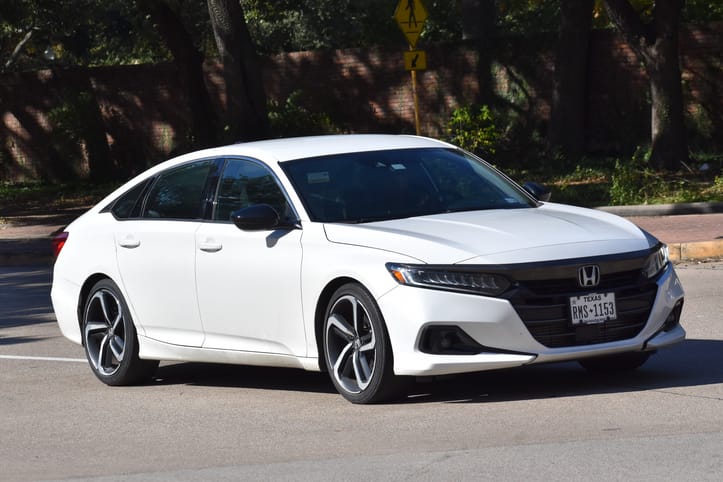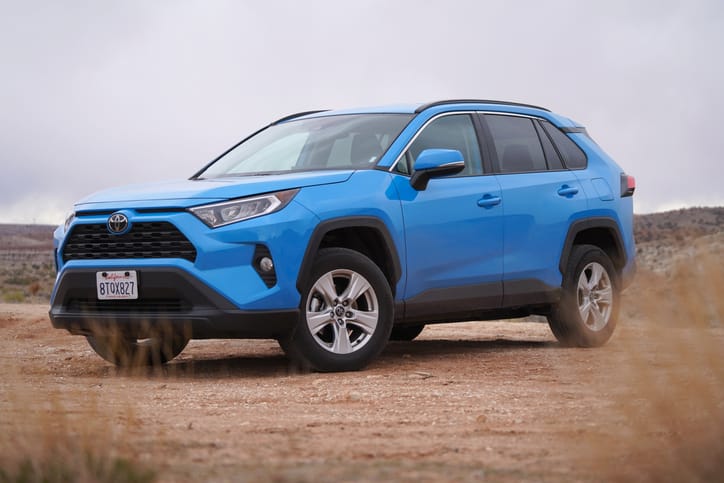Luxury vs. Value: Finding the Best Bang for Your Buck

In the car world, two forces constantly battle for our attention: luxury and value. On one hand, luxury brands beckon with their opulent interiors, cutting-edge technology, and prestigious badges. On the other hand, value-oriented cars offer practicality, affordability, and features that make everyday driving a breeze. But which path leads to the best "bang for your buck"? The answer, like most things in life, isn't a simple one. It depends on your priorities and driving needs.
The Allure of Luxury
Luxury cars are the undisputed kings of comfort and prestige. Stepping inside a high-end sedan or SUV is akin to entering a first-class cabin. Supple leather seats with intricate stitching cradle you, wood or metal accents add a touch of sophistication, and advanced sound systems deliver immersive audio experiences.
Luxury extends beyond aesthetics. These cars are often packed with cutting-edge technology like adaptive cruise control that maintains a safe distance from other vehicles, night vision to enhance nighttime visibility, and head-up displays that project vital information onto the windshield.
Owning a luxury car carries a certain cachet. It's a statement piece that reflects your success and discerning taste. Brands like Mercedes-Benz, BMW, Audi, Lexus, and Acura have built their reputations on delivering exceptional driving experiences and a sense of exclusivity.
The Value Proposition
Value-oriented cars prioritize practicality and affordability. They offer a lot of features and capabilities for the price, making them ideal for budget-conscious buyers who prioritize getting from point A to B efficiently and comfortably.
Modern value cars are no longer spartan econoboxes. They often come equipped with features like touchscreen infotainment systems with smartphone connectivity, driver-assistance technologies like blind-spot monitoring and automatic emergency braking, and comfortable seating for passengers.
Fuel efficiency is another strong point for value cars. Manufacturers often prioritize smaller, more economical engines or hybrid options, translating to lower running costs. Brands like Honda, Toyota, Mazda, Kia, and Hyundai have established themselves as leaders in the value segment, offering reliable and well-equipped cars at competitive prices.
Finding the Right Balance: Consider Your Needs
So, which approach is right for you? Here are some factors to consider when choosing between a luxury car and a value car:
- Budget: Luxury cars come with a hefty price tag. Not only is the initial purchase cost higher, but maintenance and insurance will also be more expensive. Value cars offer a more budget-friendly option, allowing you to save money upfront and in the long run.
- Driving Needs: If you spend most of your time commuting in heavy traffic, features like adaptive cruise control that handle stop-and-go situations might be more important than a premium sound system. Value cars often excel in these everyday driving scenarios.
- Importance of Technology: Luxury cars are at the forefront of technological innovation. If you crave the latest gadgets and safety features, a luxury car might be a better fit. However, value cars are catching up quickly, offering many of the same technologies at a lower price point.
- Brand Image: Some people enjoy the prestige associated with owning a luxury car. However, if brand image isn't a priority, a value car can offer all the functionality you need at a fraction of the cost.
Car Examples: Luxury vs. Value
Let's take a closer look at some specific car examples to illustrate the differences between luxury and value:
- Luxury: Mercedes-Benz E-Class vs. Value: Honda Accord
The Mercedes-Benz E-Class epitomizes luxury. It boasts a sumptuous interior with high-quality materials, a powerful engine, and a plethora of advanced driver-assistance features. However, it starts around $55,000 and requires premium fuel.

On the other hand, the Honda Accord offers a spacious and comfortable cabin, a fuel-efficient engine, and a long list of standard features at a starting price of around $27,000. It may not have the same level of prestige as the E-Class, but it delivers excellent value for the money.

- Luxury: Audi Q5 vs. Value: Toyota RAV4
The Audi Q5 is a luxurious SUV that combines a comfortable ride with impressive performance. It boasts a sleek design, a tech-laden interior, and a smooth-shifting transmission. However, the price tag starts around $42,000.

The Toyota RAV4 offers a compelling alternative. It's a practical and fuel-efficient SUV with a spacious interior, good cargo capacity, and a long list of standard safety features. While it may not offer the same driving dynamics as the Q5, it starts at a much lower price point of around $27,000.

The Final Word: It's All About Priorities
There's no single right answer to the luxury vs. value debate. It all boils down to your priorities. Here's how to wrap up the article:
- Finding the Sweet Spot: Many car manufacturers offer models that strike a balance between luxury and value. Look for cars with upscale features like heated seats and sunroofs, but without the hefty price tag of a full-blown luxury car. Consider brands like Acura and Lexus, which are known for offering premium experiences at a more attainable price point.
- Do Your Research: Before making a decision, take some time to research different car models. Read reviews, compare features and specifications, and most importantly, test drive several cars to see which one feels most comfortable and enjoyable to drive.
- Beyond the Badge: Don't get overly swayed by brand names. Value cars have come a long way, offering excellent quality, reliability, and features. Focus on finding a car that meets your needs and budget, regardless of the badge on the front.
- The Joy of Driving: Ultimately, the best car is the one that puts a smile on your face every time you get behind the wheel. Whether you choose a luxurious chariot or a practical workhorse, make sure it complements your lifestyle and brings you joy on the road.
In Conclusion: Finding the best bang for your buck in the car world requires careful consideration of your needs and wants. By understanding the trade-offs between luxury and value, researching different options, and prioritizing what matters most to you, you can choose the perfect car that delivers satisfaction for miles to come.
